Bristol, home to overpriced oat lattes, (seemingly) never-ending hills, and the eternal question: Why is everyone panic-signing contracts in November? Whether you’re still in halls or one mouldy wall away from a breakdown, here’s your (unofficial) guide to understanding housing language, rights, and Bristol neighbourhoods so we can find ‘the one’ for you. Here’s everything we wish we’d known before signing a lease for an overpriced house that’s falling apart!
Don’t rush
First things first, and let us make this very clear: you do not need to sign your lease by the end of October. I know it feels like every other student is wedded to a house and are planning Come Dine With Me evenings with their new uni besties, but fear not, there are plenty of good houses still left later on in the year. Take your time. Choose your housemates wisely. You’ve only known a lot of these people for a few weeks, splitting rounds in the Brass Pig is very different to splitting electricity bills.
Location Location Location
Redland
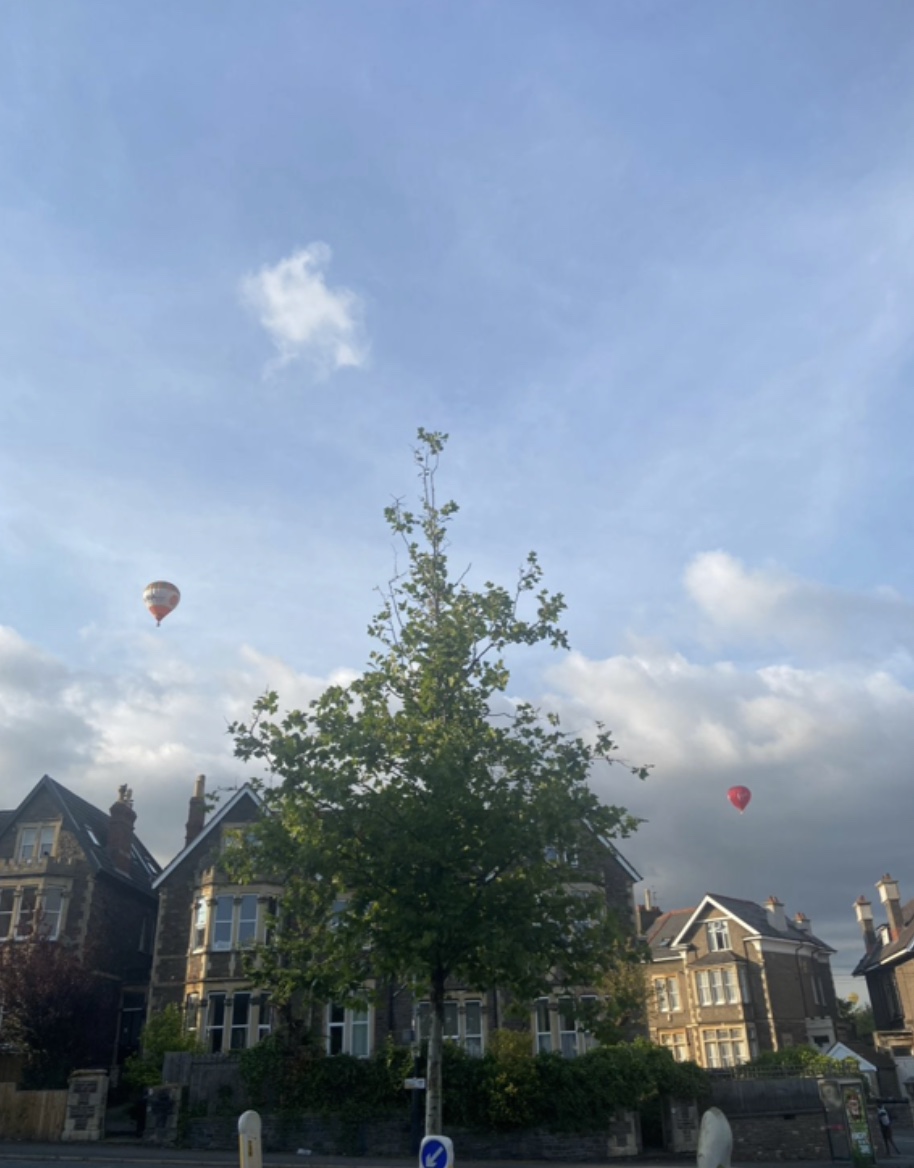
Redland and Cotham are classic student areas for a reason. Most houses are within a 10–15 minute walk to campus (perfect for making those dreaded 9ams), and you’re right next to Whiteladies Road filled with buzzy pubs, restaurants, and Clifton Down Sainsbury’s – the epicentre of our uni lives. Lest we forget the ideal distance to the Triangle! It is social, convenient, and full of other students (perhaps too full). But beware, competition in this area is fierce and some houses are audaciously overpriced.
Average prices per person: £725-£1100 pcm
Clifton
Clifton is Redland’s regal older sibling- calm, cool and collected (if your student loan can handle it!). Think Georgian houses, greenery, and Clifton Village in close proximity for “treat yourself” brunches. Clifton is the perfect place to romanticise your uni life, until you realise your room is the size of a shoebox and costs more than your entire maintenance loan. Still, Clifton has points for its undeniable beauty, the Downs, and (who can forget) the Clifton Suspension bridge which you will undoubtably post to your Instagram story. If your a fast-walker, we trust you could be on Woodland Road within 15 minutes.
Average prices per person: £600-£1050 pcm
City Centre
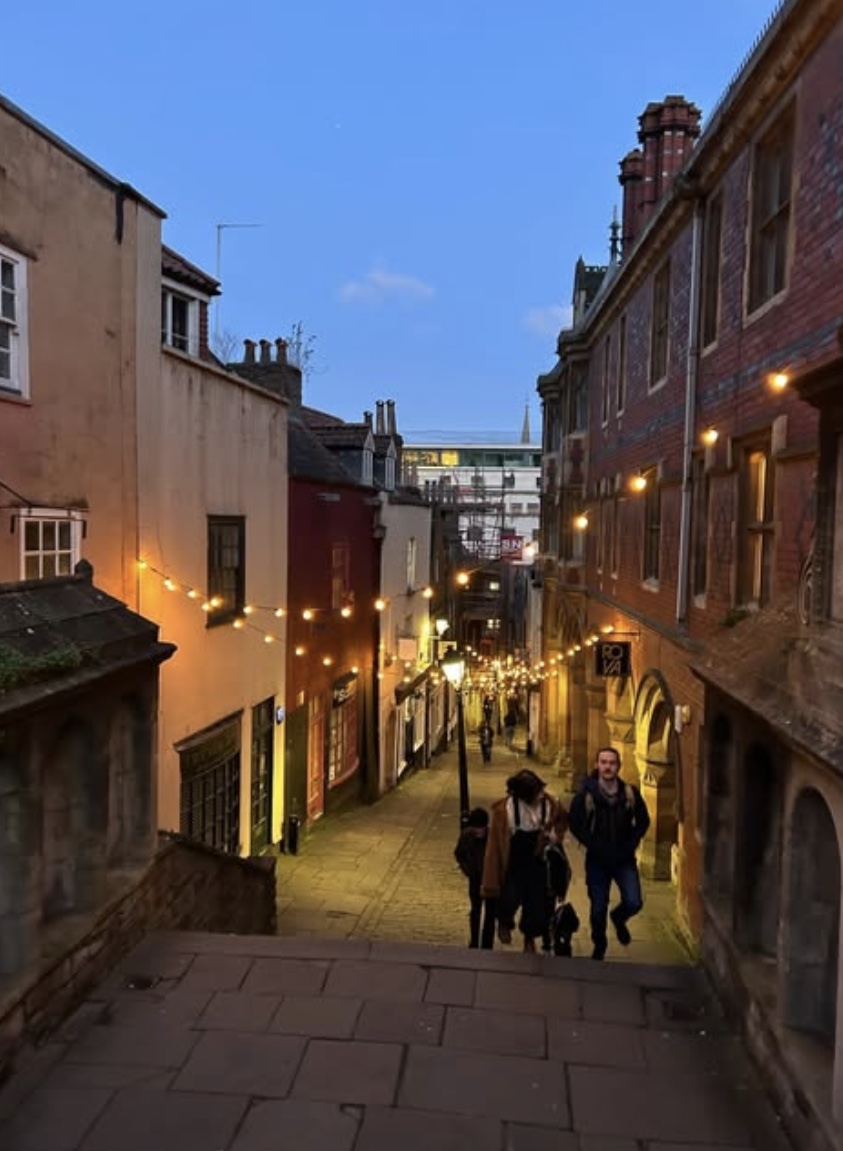
The most chaotic of all, city centre. Perfect for those who want to avoid an Uber after SWX fishies, the city centre is largely close to everything (clue is in the name). It can sometimes feel like you’re living in a Wetherspoons at all times, but whether it be campus, the clubs, or for good old-fashioned shopping, you’re nearby (ish). Peace and quiet are distant dreams, but at least you get to see someone fighting a seagull at three in the morning before a nine-AM, what a story to tell!
Average prices per person: £500-£1025 pcm
Glouster Road / Montpellier / Stokes Croft

Welcome to Gloucester Road, you’re officially cool! If you think you’re alternative, but still shop at Urban Outfitters, this is the place for you. G-road (as it is colloquially known) is full of charity shops, craft beers, and people who look like they have stepped out of Vogue while you go get groceries. You’ll pay slightly less than you would in Clifton or Redland, but will spend half your time dodging cyclists and hipsters. Still, you’ll feel very Bristol here, despite losing some of your sanity walking up Cotham Brow to get to university every day.
Average prices per person: £600-£900 pcm
Kingsdown & Cotham
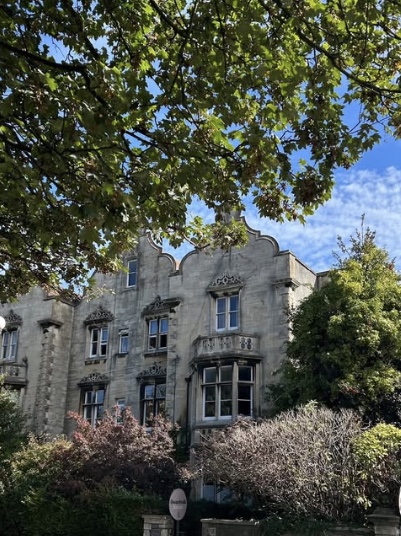
Kingsdown and Cotham are perfect for the people who want just the good bits of Redland; close to campus, similar pretty houses, but fewer drunk second-years yelling outside your window. The hills are brutal (seriously, bring walking shoes), but the location is unbeatable for those early morning lectures you tell yourself you’ll go to. This area is perfect if you want the convenience of campus without the chaps, or if you’ve matured enough to prioritise a decent night’s sleep over an afters that ends at sunrise.
Average prices per person: £650-£900 pcm
Fishponds
Fishponds is a budget friendly outlier for Bristol, perfect for a UWE student, but far enough for a UOB student to count it as a day trip. It’s got big houses, parks, and actual shops that don’t charge £4 for a loaf of bread. The downside? Commuting. If you’re a regular bus user, they can test your will to live- making spontaneous campus meetups feel like full logistical operations. But, you will most definitely save money.
Average prices per person: £400-£650 pcm
viewings
okay so you’ve booked your viewings – what now?
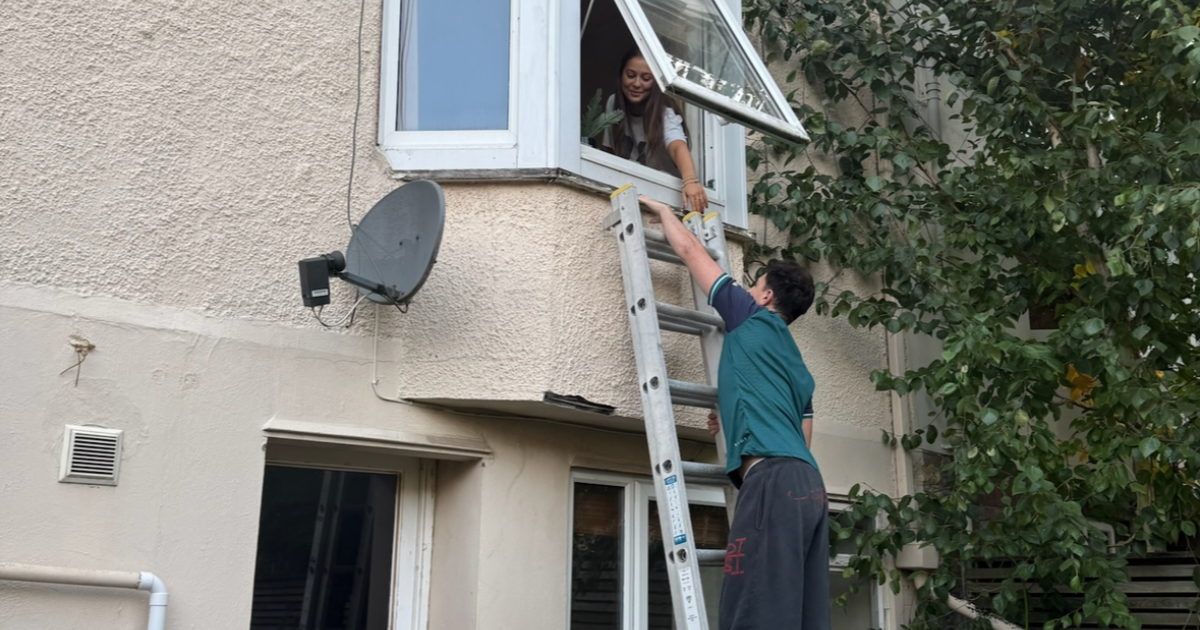
Bring a checklist to every viewing, it might sound a bit over the top, but trust me, it will save you from signing a lease on a house with a shower that has the water pressure of spring drizzle and mould that is covered by a poster of Mia Wallace.
Here are a few things to look out for…
Bathrooms: Make sure you’re happy with the number of bathrooms. One shower between six people might seem fine at first, until your housemate starts taking hour long “everything showers” and not just on special occassions.
Ground floor bedrooms: You might be willing to “take one for the team” but don’t rush to volunteer as you will be the one everyone stumbles past at 4am after a night out. The street noise isn’t the most relaxing and because you’re the closest to the door everyone will expect you to answer it. It is possible to find a house with no ground floor bedrooms, if that is important to you.
Neighbours: Check who lives nearby, it is best to live in a student populated area because when you imagine second year life, you probably fantasise about weekly house parties. But if the majority of your neighbours are elderly couples or families, your first pres might also be your last. We learnt this lesson the hard way, having several neighbours ‘politely’ knocking on our front door as we closed our bedroom doors too loudly.
Mould and damp: Check around the walls and windows, if it smells musty, it could be mouldy, and that’s something you don’t want to be dealing with once you have moved in. Trust me, having a leak in your ceiling from all the damp in the walls is not fun.
Heating and water pressure: This is something you may forget to think about when looking at a house. Test out the taps, have a look at the showers and ask how much the bills usually are.
Appliances: Make sure the house actually has everything you need. For some people a dishwasher, washing machine or tumble dryer may be a non-negotiable, whilst others in your group may be more than happy to live without these. Do not assume they’re included, make sure to double check before signing your lease.
Housing Jargon demystified
Let’s be honest, when you sign a student house it feels like you’re entering a legally binding relationship that you didn’t read the terms and conditions for. Here is some housing jargon that your letting agent will throw around that you should probably know before agreeing.
Tenancy Agreement – This is your contract, the legal document that states how long you will live in your house, how much you’ll pay, what is and isn’t allowed (seeing whether pets or parties can be brought into existence). Read this properly before signing, seriously.
Guarantor – A financial babysitter. Usually a parent or guardian that promises (legally!) to pay your rent if you forget to (or can’t). If you don’t have one in the UK, you’ll often need to pay rent upfront.
Holding Deposit – A small upfront payment that reserves your house while paperwork is done. It usually comes oC your main deposit (only if you actually go through with renting, if you change your mind, say goodbye to that £100).
Inventory Check – This is a list of everything in the house, and its condition before you move in. Typically done on the moving in day or before. Make sure you take photos of everything. That dodgy mark on the wall? It’s not your fault, prove it!
Letting Agent Fees–These were banned under the Tenant Fees Act (2019), so you should never be charged for viewings, contacts or ‘admin’ (whatever that means). The only legal costs now are your holding deposit, security deposit, rent and small things like lost keys – anything else is sketchy, so question it.
Your rights
Before you sign a contract for a house that smells like damp and despair, remember: as a student, you actually still have rights. Here are the main ones worth knowing, and flexing if needed.
1. Repairs are their job, not yours.
If you have a leaking roof, broken boiler, or an infestation of rats and fruit flies staging a coup in the kitchen, your landlord must fix anything that that affects your health or safety, and they can’t charge you for it.
2. Your deposit must be protected.
If you pay a security deposit, your landlord must put it in a government-backed deposit protection scheme within 30 days. Ask for proof, and if they don’t send it, that’s illegal.
3. They can’t just walk in.
Agents and landlords have to give at least 24 hour’s written notice before entering, unless it is an actual emergency. If they keep turning up unannounced, that’s illegal (and kind of creepy). Just remember, you are entitled to a safe home, even though it may feel like everyone is going through a hellish experience. Knowing your rights means you’re already a one step ahead.
Housemates and keeping the peace
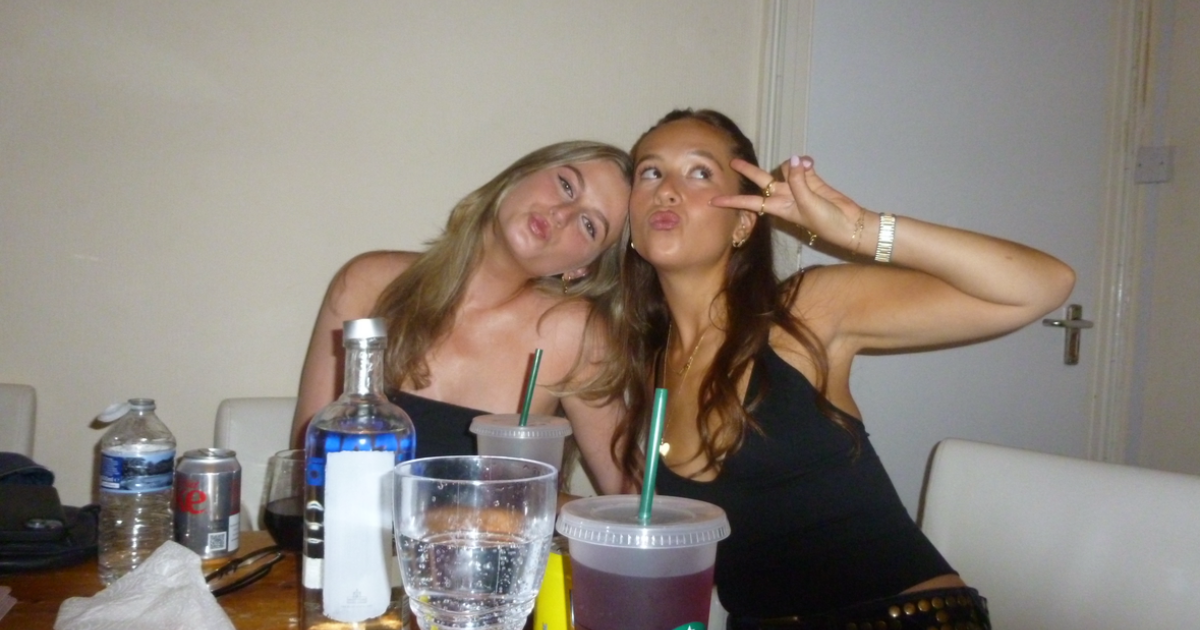
Living with your best friends is a lot of fun – cooking together, rotting on the couch and dancing round the kitchen. It’s like a permanent sleepover until bins are involved. Before you know it, the kitchen sink is smelling of something you can’t quite place, except in the decidedly repungnant category. Passive aggressive texts don’t end with your first-year flat group chat, trust us, they have only just begun. The kitchen will begin to resemble an assault course, someone will keep “borrowing” your olive oil and the pile of dishes will become a permanent feature. It’s High art, your parents won’t get it.
At some point, you’ll send a strongly worded message to the group chat about whoever’s left food in the sink again, the tension in the group chat may resemble that of the Cuban Missile Crisis. If you want to avoid a cleaning war, it can be helpful to make a cleaning rota.
There is also the classic issue of shared essentials: dishwasher pods, kitchen paper, and hand soap. Everyone swears they will take turns buying it and somehow, three months in, you’re the one who’s bought it every single time, and people start hiding loo roll in their bedrooms. One housemate may suggest a downloading making a spreadsheet, no one will ever fill it out. That’s why it’s important to live with a group of people you know and trust, and feel comfortable sorting these issues out with.
Our best advice is to take all of the above in jest, deal with everything gracefully; no one has died from the sight of a plate that hasn’t been washed in 30 hours, however uncharming it may be.
It may feel stressful now but think of your first house party next September; drinking out of plastic pint glass that is yet to experience a rinse let alone fairy liquid, dancing on a mouldy carpet and trying to ignore your housemate getting off with a boy you met 10 minutes ago on a leather sofa made in 1998. Welcome to adulthood and remember your renting rights!
